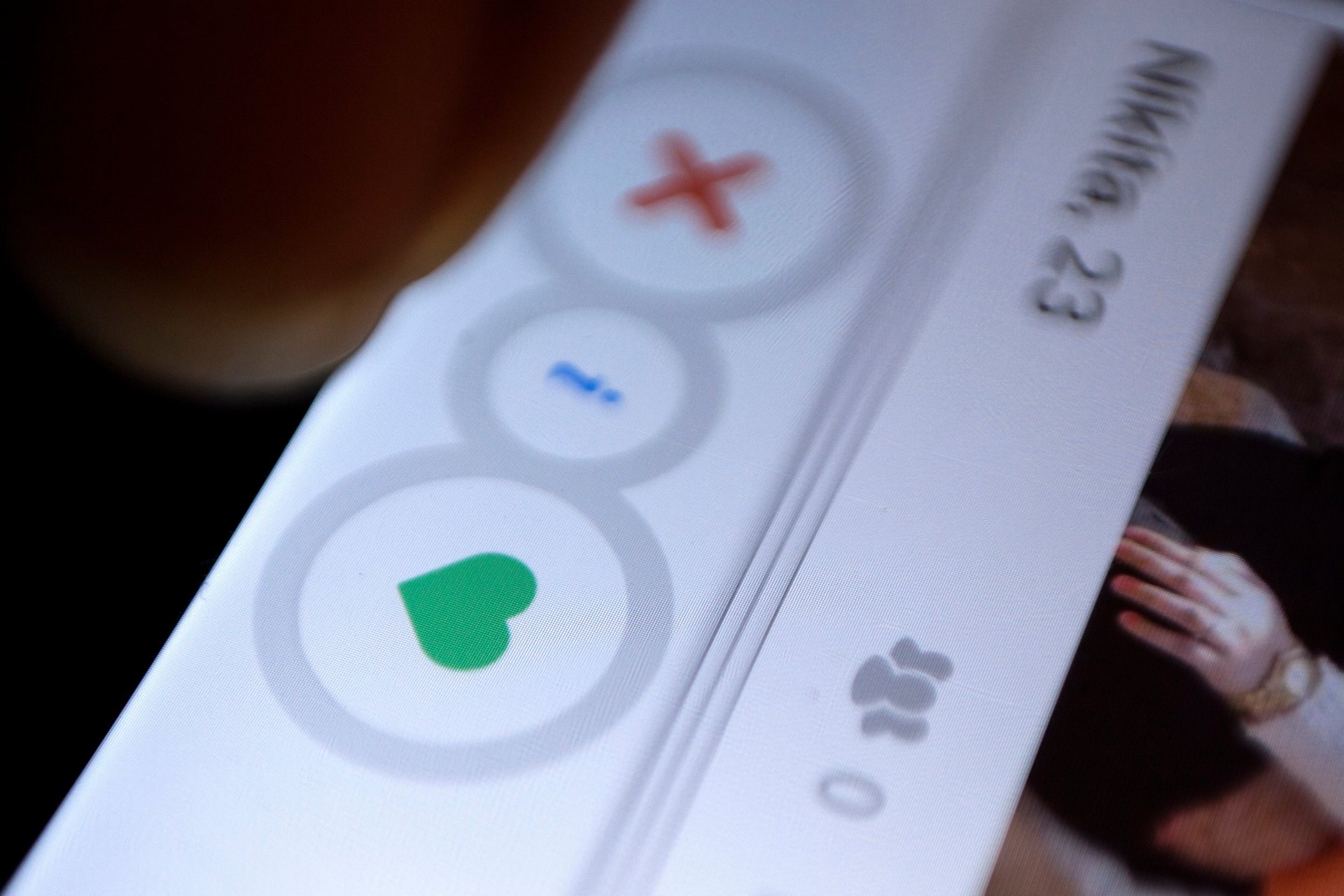Tinder insists it’s not just for hookups, via a Twitter tantrum
The team behind Tinder, the mobile dating app that lets users swipe right or left on pictures of potential matches, is all fired up about its portrayal in the September issue of Vanity Fair. Last night (Aug. 11), via its official Twitter account, the company published a barrage of defensive statements aimed at the magazine and Nancy Jo Sales, who wrote “Tinder and the Dawn of the ‘Dating Apocalypse'”.


The team behind Tinder, the mobile dating app that lets users swipe right or left on pictures of potential matches, is all fired up about its portrayal in the September issue of Vanity Fair. Last night (Aug. 11), via its official Twitter account, the company published a barrage of defensive statements aimed at the magazine and Nancy Jo Sales, who wrote “Tinder and the Dawn of the ‘Dating Apocalypse'”.
The article has been widely shared and discussed since it became available on Vanity Fair’s website early this month. Tinder’s reaction is a bit late, and may have been spurred by a recent tweet from Sales mentioning a survey that said 30 percent of Tinder users are married.
“That survey is incorrect,” Tinder tweeted, before unleashing a slew of increasingly defensive tweets that brought to mind one of its own users after being swiped left:
Sales’s story is, arguably, about the host of modern dating apps and services like Tinder, which have changed the game of meeting and forming romantic relationships, for better or worse. An excerpt:
Mobile dating went mainstream about five years ago; by 2012 it was overtaking online dating. In February, one study reported there were nearly 100 million people—perhaps 50 million on Tinder alone—using their phones as a sort of all-day, every-day, handheld singles club, where they might find a sex partner as easily as they’d find a cheap flight to Florida. “It’s like ordering Seamless,” says Dan, the investment banker, referring to the online food-delivery service. “But you’re ordering a person.”
The article did not include any comments from Tinder employees or executives, but it prominently featured quotes from Tinder users expressing their feelings about the app. For example: “‘I hooked up with three girls, thanks to the Internet, off of Tinder, in the course of four nights, and I spent a total of $80 on all three girls,’ Nick relays proudly.” And: ”‘New York guys, from our experience, they’re not really looking for girlfriends,’ says the blonde named Reese. ‘They’re just looking for hit-it-and-quit-it on Tinder’.”
The app’s PR department would have much preferred if Sales had spoken to its disadvantaged users in places like Pakistan and North Korea:
It’s unclear how someone can access Tinder without an active Facebook account, which the app requires to verify users’ identities. Both North Korea and China block Facebook.
In any case, the company’s flurry of tweets may have backfired by introducing the article to people who otherwise would not have read it.
In a statement to media outlets after the Twitter barrage, Tinder admitted that it has “overreacted.”